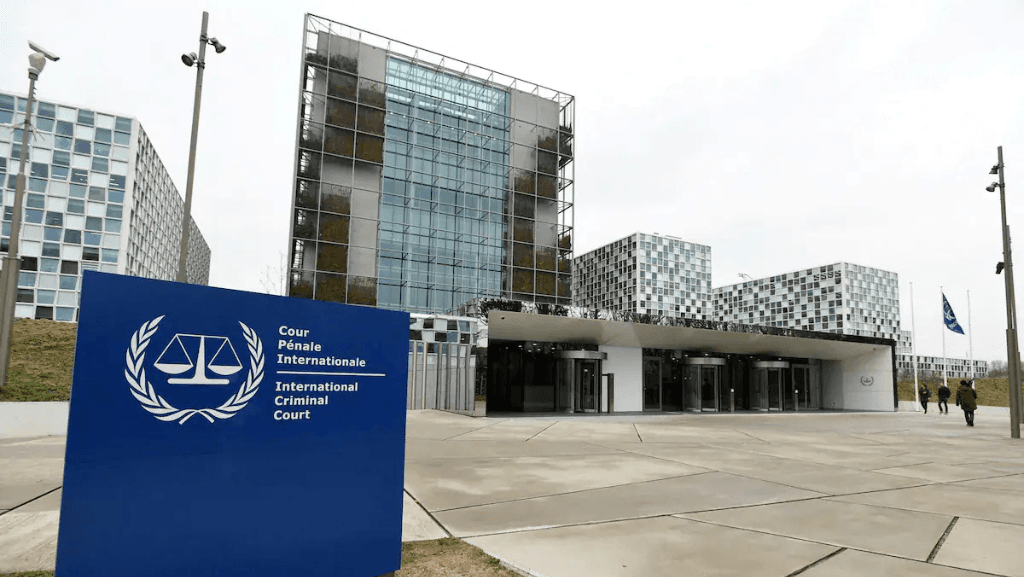
Trump Sanctions on ICC Court Highlight Europe’s Vulnerability to U.S. Tech Dominance
U.S. sanctions on the ICC expose Europe’s reliance on American tech infrastructure, raising urgent questions about digital sovereignty and legal independence in multilateral governance.
The Trump administration’s renewed sanctions on the International Criminal Court (ICC) have reignited concerns across Europe about the region’s structural dependence on U.S. technology infrastructure and legal asymmetries in international affairs. The move underscores the broader geopolitical leverage Washington retains over multilateral institutions through its control of key tech platforms, financial systems, and cloud services.
On May 28, 2025, President Donald Trump signed an executive order targeting officials at the Hague-based ICC. The sanctions include visa bans, asset freezes, and restrictions on access to U.S.-controlled digital systems, including cloud-based productivity platforms, banking systems, and online communications services.
EU Condemns Sanctions but Lacks Enforcement Power
Legal experts and international organisations have decried the move as a stark example of unilateral pressure on international justice.
The European Union, which is a supporter of the ICC and has often taken a multilateral stance on issues of international accountability, finds itself at a crossroads. While EU leaders, including European Commission President Ursula von der Leyen, condemned the sanctions, the enforcement capacity to counteract them remains limited due to Europe’s reliance on U.S.-based tech giants like Microsoft, Amazon Web Services, and Google.
A 2023 European Parliament report found that over 92% of EU governmental data is hosted on non-EU cloud services, predominantly U.S.-based. This leaves institutions like the ICC, which rely on secure online communications and digital evidence storage, exposed to U.S. jurisdiction through providers bound by American law, such as the Cloud Act.
Legal Experts Call for Digital Sovereignty
Experts argue that these sanctions go beyond political disputes—they highlight Europe's dependence on U.S.-controlled tech infrastructure, making legal institutions vulnerable to geopolitical influence.
The concern is that legal independence is increasingly tied to the tech systems that support it, reinforcing the urgency for Europe to develop its digital sovereignty strategies.
The move is also expected to escalate the ongoing conversation in Brussels around the need to accelerate the implementation of the EU’s Digital Sovereignty strategy, including the development of European cloud platforms like Gaia-X. However, industry observers point out that progress remains slow, and adoption levels across EU institutions remain modest.
ICC Vows to Uphold Judicial Independence
From a legal standpoint, the ICC remains undeterred. Chief Prosecutor Karim Khan emphasised that the court will continue its mandate “without fear or favour” and will not be influenced by “politically motivated coercion.” Nevertheless, U.S. sanctions will likely cause severe operational hurdles, particularly in cross-border data access, international coordination, and digital communications.
While the sanctions do not prohibit all transactions with the ICC, they create a chilling effect for companies and contractors doing business with the court.
Human rights groups, including Amnesty International and Human Rights Watch, have issued joint statements urging European governments to offer “tangible support” to the ICC, including infrastructure protection and legal safe harbours. However, they also acknowledge the risk that such support could subject European companies and institutions to secondary sanctions from Washington.
The clash is part of a broader shift under Trump’s second administration, which has taken an increasingly sceptical stance on international institutions and climate agreements, and has rolled back regulatory interventions initiated under Gary Gensler’s SEC leadership. In the digital space, the Trump administration has favoured deregulation, which appeals to many in the crypto and AI sectors but creates uncertainty in the enforcement of international norms.
As the debate intensifies, the ICC sanctions are proving to be more than a diplomatic message—they are a test of Europe’s legal and technological autonomy in the face of U.S. geopolitical muscle.
Summary
The U.S. sanctions against the ICC reflect not only political opposition to the court’s investigations but also the strategic advantage the U.S. wields by dominating global tech infrastructure. For Europe and other multilateral institutions, the incident highlights a pressing need to develop digital independence to safeguard the rule of law from extraterritorial coercion.
For any enquiries or information, contact info@thelawreporters.com or call us on +971 52 644 3004. Follow The Law Reporters on WhatsApp Channels.